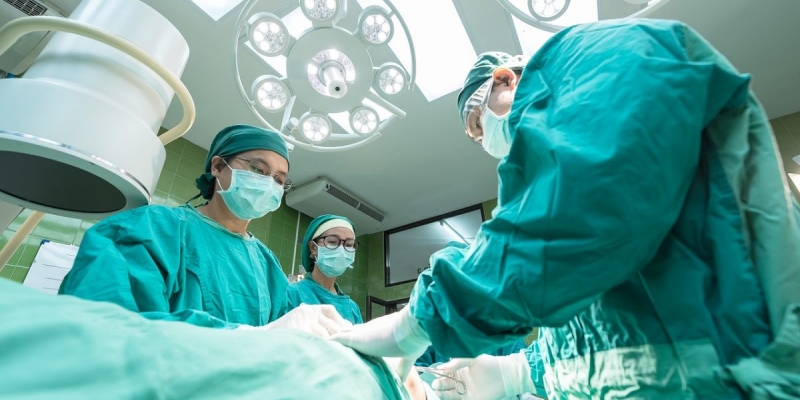India – An emerging hub in medical tourism
As per the study published in the Medical Tourism Market Report 2015, India was discovered as “one of the lowermost costs and superior quality of all medical tourism destinations”.
Medical Toursim in India - since ages, India has been largely known for its blessed culture, rich heritage and unmatched hospitality, which makes it a global hub for many travelers looking to get exemplary healthcare at the most competitive costs. Do you know that the Indian Medical Tourism Sector has been witnessing a superb growth rate of 18% CAGR per year? At present, it holds around 18% of the global share in medical tourism, the country is all set to make it to 20% with a value of nearly USD 9 billion by the end of this year. As per the study published in the Medical Tourism Market Report 2015, India was discovered as “one of the lowermost costs and superior quality of all medical tourism destinations”. India has assiduously documented the opportunity and is exhibiting its strength and potential in the global market through public-private association, thereby paving the path to becoming the most sought-after destination for medical tourism.
# Factors driving this growth
India has positioned itself as the provider of a full-fledged pool of healthcare services at the most competitive rates. Despite having a high level of diversity in terms of language and culture, the country is known to be one of the biggest English-speaking regions. Apart from this, the easy availability of linguists, English-based professionals always appear like a big advantage for the nation particularly in regard to the incoming tourists. Whether it is heart bypass, angioplasty, and bone-marrow transplant or even plastic surgery and dental care, India has rapidly transformed itself into a leading destination for these medical processes along with next-gen and alternative medicine processes. Some of the big factors complementing this steadfast growth of medical tourism in the country are:
# Affordability:
India is known to have a fully-certified, superbly skilled and knowledgeable healthcare experts that offer low-cost services of widely accepted international standards. Moreover, India enables world-class hospital infrastructure at the lowest possible charges in comparison to the developed world like the US, UK and Gulf regions. The already mentioned 2015 market report on medical tourism has discovered that India offers a wide range of medical procedures at about one-tenth of the cost of the same procedures in the United States’. An example stated by Health Status stated that while an open- heart surgery would cost nearly USD 150,000 in the US, it would cost anywhere between USD 3000- 10,000 in the most popular hospitals in India. A patient coming to India for their medical service can thus save nearly between 30-70% of their expenses, including travel and accommodation.
# Technology-led Support:
From allocating the entire treatment plan to post-hospitalization care, India has been integrated world-class technological advancements for enhanced clinical results and for managing the entire lifecycle of a patient. From machine learning to IoT sensor advancements, these interferences are redesigning the future of healthcare. Being a quick embracer of these changes, India has definitely gained an advantage over other nations in regard to healthcare. In such a scenario, concentrated attention is given to a patient as per their convenience, thereby enabling them with services tailored according to their specific diagnostic characteristics. Although delivery of such high-level care and hospitality at reasonable rates, India has been welcoming a large number of medical tourists for customized care, supposed to rise up to USD 6.2 billion by 2020, as per a study conducted by CyberMedia Research (CMR).
# Post-treatment Retrieval:
Boasting of well-accepted natural therapeutic disciplines such as Ayurveda, Naturopathy and Yoga, India is known to deliver the best care post-treatment. With the use of these natural treatments that are based on holistic wellness through the removal of toxic inequities, Ayurveda and Yoga are progressively being acknowledged on the global level. The degree of this can be validated by the fact that Ayurveda has been acknowledged as an alternate type of medicine by WHO. Alternative medicine is also one of the most widely accepted treatments by medical tourists in the nation. Public & Private Players. When it comes to contributing to the growth of medical tourism in India, the role of both public as well as private healthcare institutions can’t be overlooked. By making the process easy and unified along with drafting strategies guarantying unmatched transparency and patient safety, the government is firming the cause.
On the other hand, Private healthcare institutions have been playing a pivotal role by animatedly concentrating on developing and augmenting the infrastructure to make it at par with global values. Furthermore, these providers are putting them broadly on the improvement of skills to provide cost- effective healthcare service on the same standard as any developed nation. At present, India has over 38 JCI-accredited (Joint Commission International) and 563 NABH-accredited (National Accreditation Board for Hospitals and Healthcare) hospitals.


.jpg)





